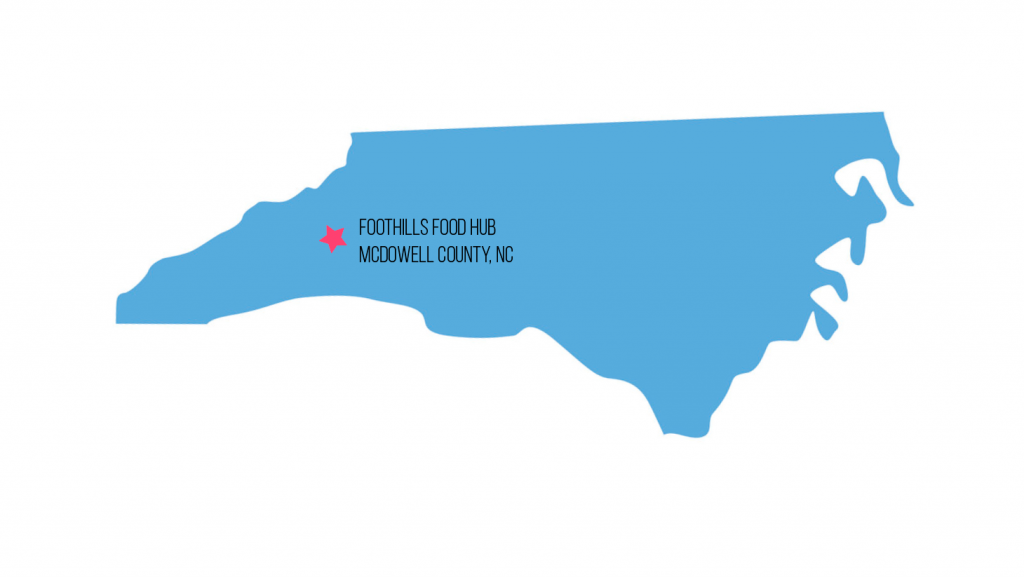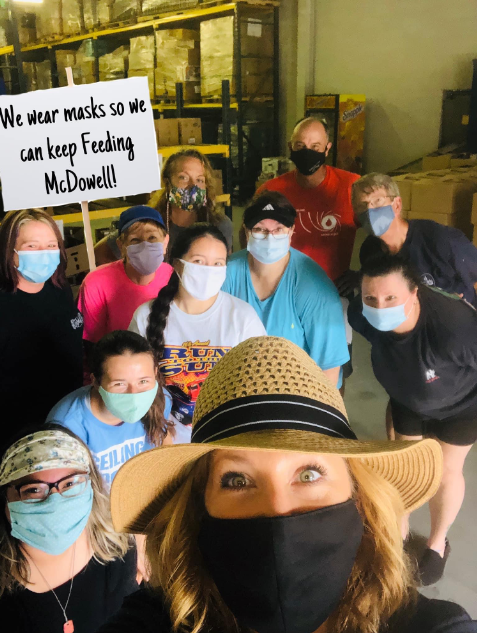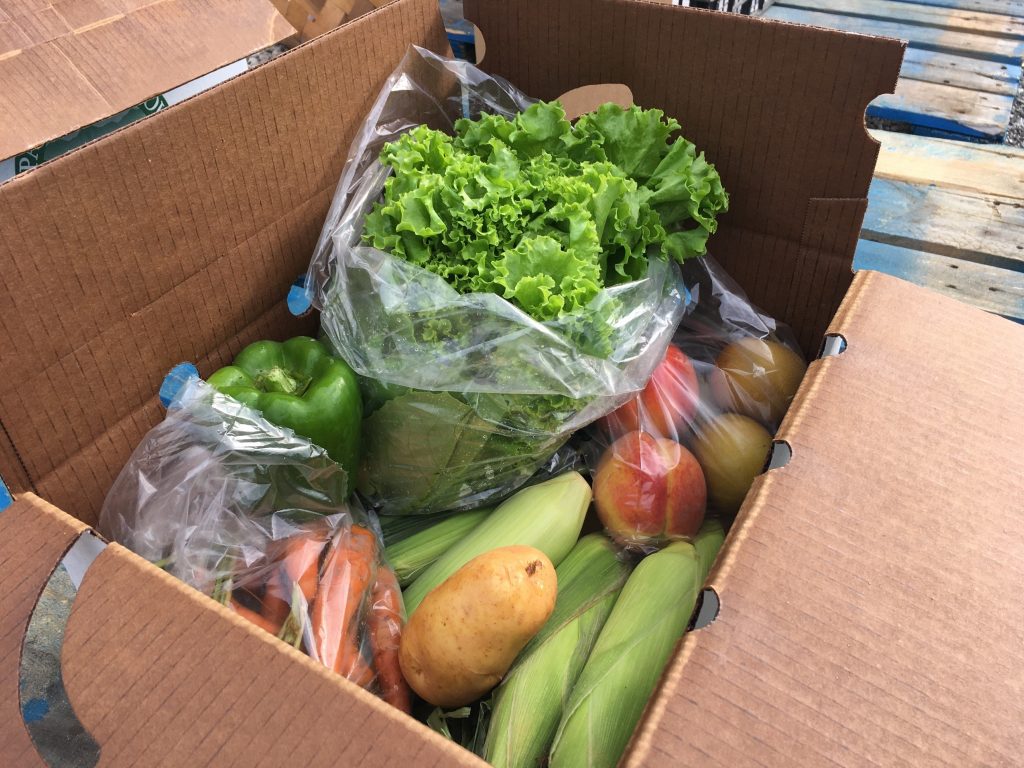Thoughts On…Connecting with Food in a Small Town
By: Brooke Bauman, UNC-Chapel Hill Class of 2021
In a small town like Marion, North Carolina, everybody seems to know everybody and everything in town. When I ask for directions in Marion, I can expect a three-minute explanation of turning at the red gate then hopping on some highway when you see someone’s dog. When local residents go downtown or shopping, they’re likely to bump into an old friend or neighbor.
This summer, I worked as a SECU Public Fellows Intern for the Foothills Food Hub in Marion. The Food Hub emerged from a growing need to support local food pantries that needed a central space where food could be stored, organized and re-packaged into boxes. The COVID-19 pandemic challenged this model because many of the older folks who usually help with distributions were not able to continue their direct volunteer work in their community. The Food Hub took this emergency in stride and stepped out of its normal role to start directly distributing food to residents at about five sites per week.

The Hub called on community members to volunteer. There are volunteers who serve a few times a month, some who serve every week and some who come several days a week. Without their help, the Food Hub would not be able to run. Throughout the summer, the Food Hub has also expanded its staff to help sustain the momentum.
In early May 2020, the Gateway Wellness Foundation announced that it would match any donations from community members and organizations to the Food Hub. With more funding, the Food Hub could expand their efforts even more.
The Food Hub is a nonprofit that relies on food donations from local grocery stores, community members and MANNA FoodBank, so there are no rules that limit who can or can’t receive food. At distributions, there’s usually some ’70s music humming from the portable speaker and a team of masked, sweating people throwing food into bags.

Most people drive up in cars, and a handful come on bikes — impressively balancing their boxes while riding home. Many folks ask for extra boxes to bring to their neighbors or friends. If there are kids in the car, we give them stickers or coloring books. We offer a package of masks to those who are not wearing one.
My personal favorite exchange is when we can hand someone a beautiful cake. Everybody involved gets all giddy thinking about cake.
We operate on the classic principle of “rain or shine,” so there are some days when we get relief from the heat but go home soaked. Community members can call to request for McDowell County transit to deliver a box to their home. This initiative has helped McDowell transit workers keep working because most community members haven’t requested as many rides to their normal appointments or meetings during the pandemic.
The Food Hub has also supported struggling farmers by buying produce from farmers to distribute. The Food Hub has started a six-week CSA program for 50 families throughout McDowell County who may be food insecure, have health conditions and will benefit from having assured access to healthy produce. Every Tuesday, a team of high school volunteers come to the hub early in the morning (big shout-out to them because I know that’s not easy) and help package produce with matching recipes. We’ve had hydroponic lettuce, peaches, sweet corn, kale, heirloom tomatoes, carrots and the list goes on. Each week, the boxes are colorful and beautiful and I feel really happy when it all comes together.

The story of the Food Hub in a small town like Marion represents what it means to live in community. A strong community is one that quickly responds to the needs of fellow residents. Whether it’s community members dropping a box for their neighbor or the Food Hub supporting McDowell Transit workers and local farmers, I have seen many beautiful examples of reciprocating kindness within this community.
In my eyes, that is the core of public service: listening to the needs of those around you and showing up for them in a meaningful way.
A few days before I started working in Marion, our country witnessed the killing of George Floyd. I don’t get homesick often, but I felt like I was missing something important in Chapel Hill as protests started. However, I continued to show up to work with the Food Hub and was happy to attend an event in Marion called “Shine the Light” to honor George Floyd and the many other Black Americans who have been killed by police. I felt so proud to listen to my internship advisor, Heather Edwards, speak at the event and advocate for equity.
After the event, I continued to read about alternatives to policing and what it means to invest in communities holistically. I learned about how Emergency Medical Service workers support people who are on the outskirts of the community. These workers sometimes refer people to resources to help them recover from an addiction. Sometimes the Emergency Medical Service workers give people food boxes or enroll them in the M.A.T.C.H. program, which connects uninsured McDowell County residents with health resources and living support.I learned abut this program from M.A.T.C.H. Program Supervisor Amy Stevens (who is often seen wearing a fanny pack at the Hub). People like Amy and Heather have kept pushing the boundaries for what the Food Hub can do. I’ve been so thankful to see the McDowell County community in action.
Read more about the SECU Public Fellow Summer Internship and other Thoughts On Connection on the CCPS website.
